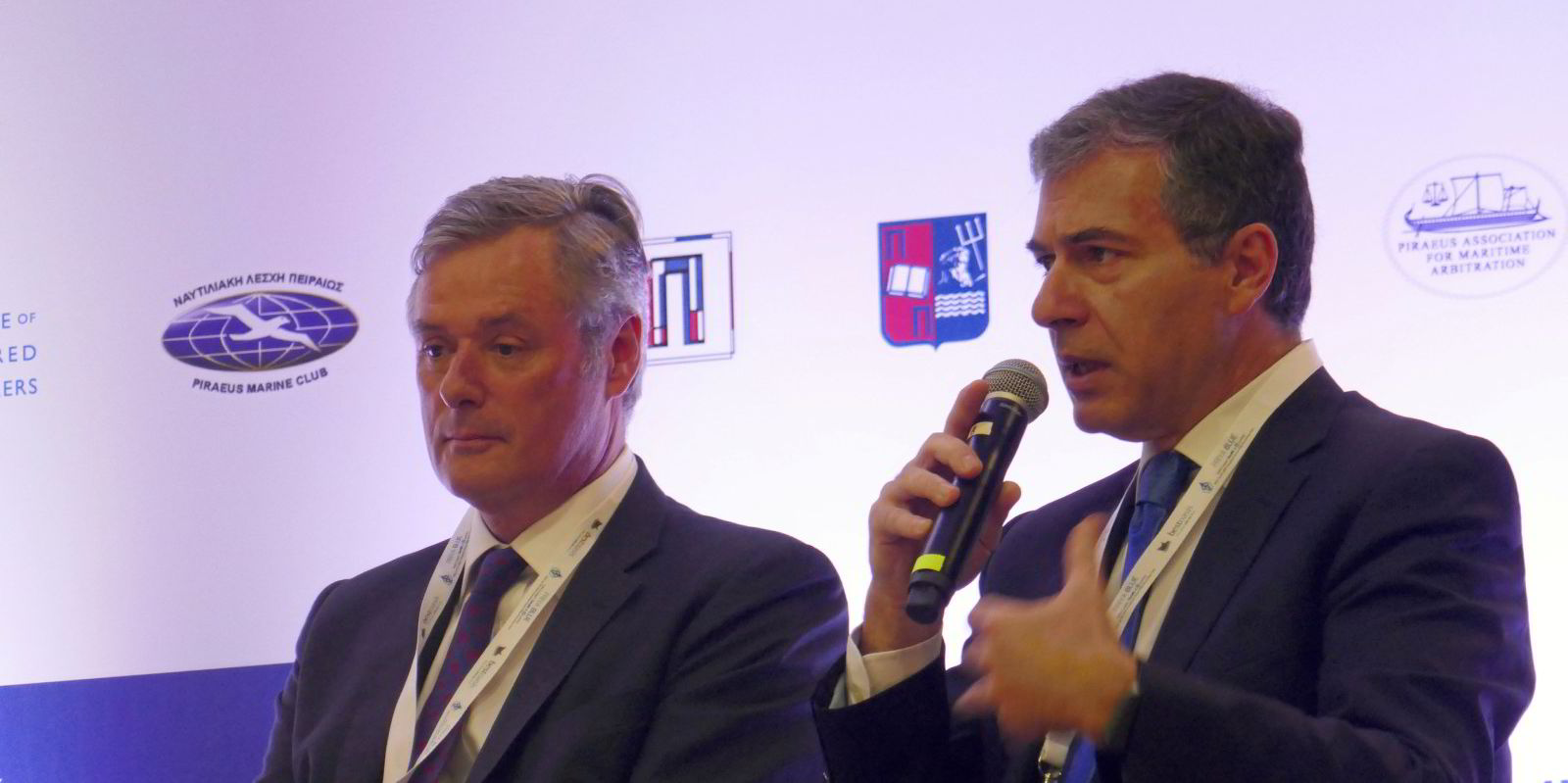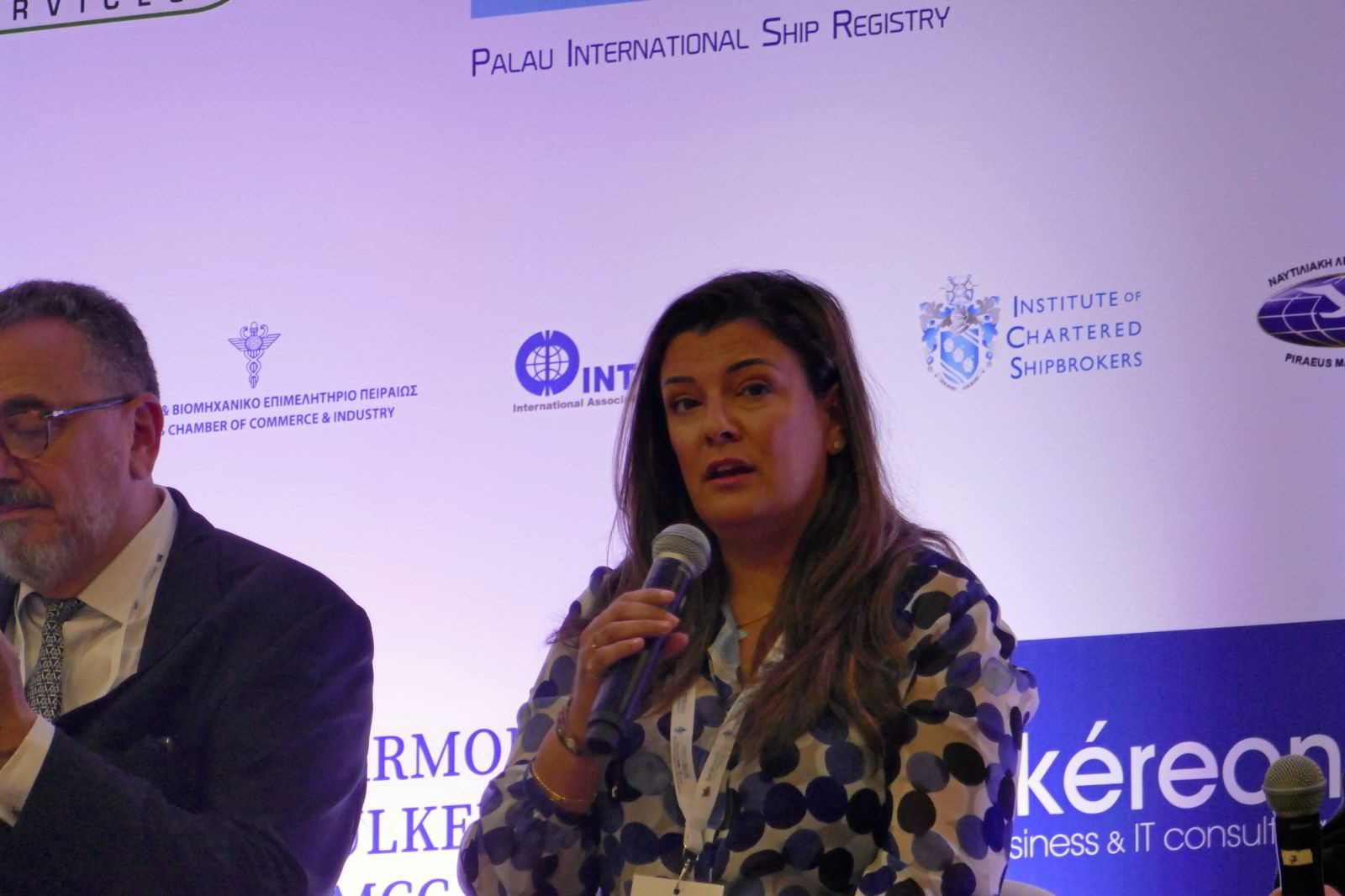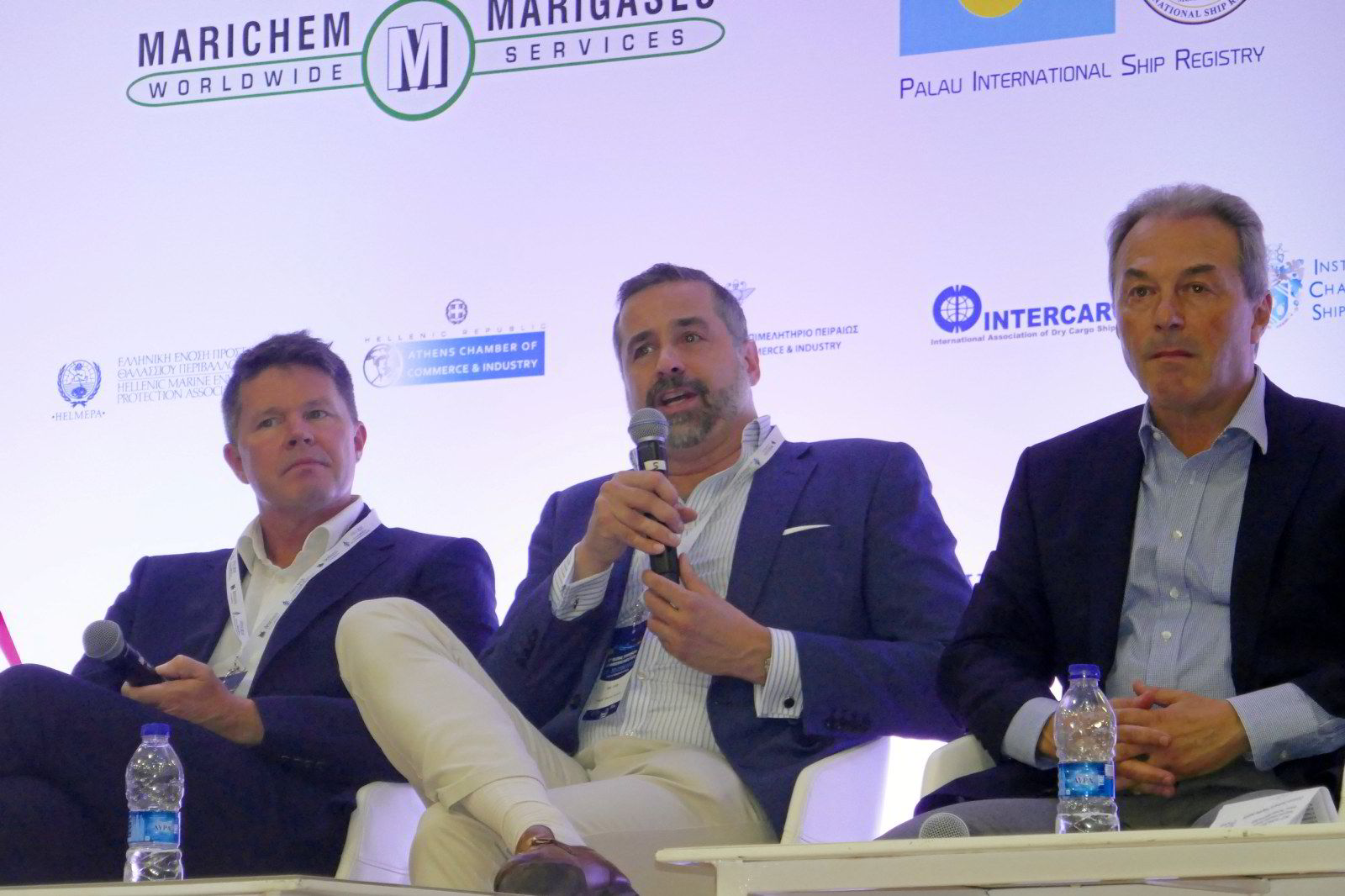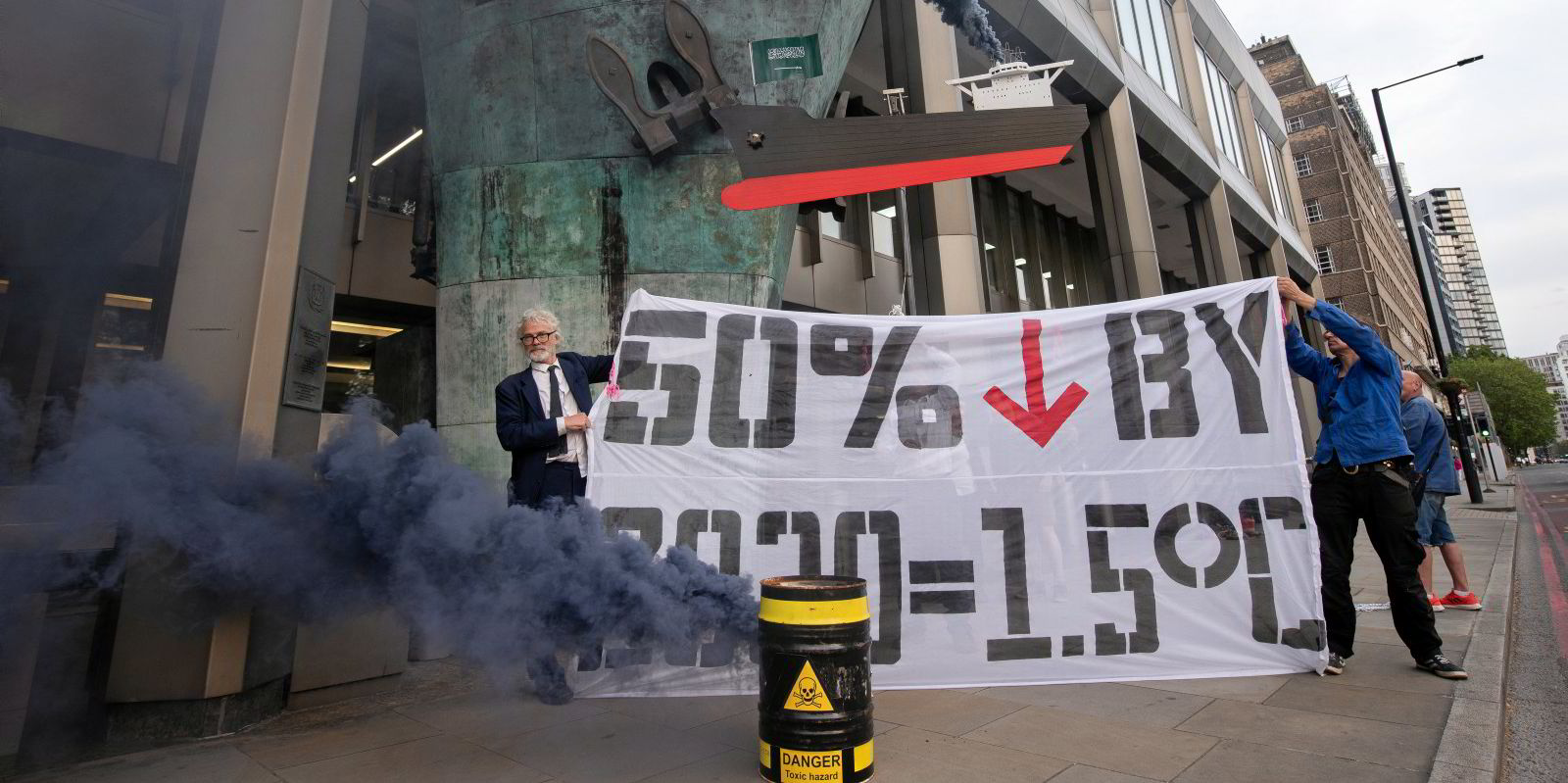Environmental regulations topped the agenda at Pireas 2023 — the 8th Global Shipbrokers Forum held in Piraeus on 29 and 30 June.
The biennial event is organised by the Hellenic Shipbrokers Association (HSA), which this year picked the Baltic Exchange as a co-host.
Just as the International Maritime Organization is about to revise its long-term greenhouse gas emission strategy, scepticism abounded among some panel participants about the pace, adequacy and expediency of such environmental targets.
“If you ask me, 2030 is not an achievable date unless we want [ships] to stop trading,” HSA president John Cotzias told brokers and shipping executives who flocked to the Melina Mercouri Hall of the Peace and Friendship Stadium.
According to its current goals, the IMO aims to reduce the carbon intensity of international shipping by at least 40% by 2030, compared with 2008 levels.
This and other targets may be revised upwards during a meeting of the IMO’s Marine Environment Protection Committee between 3 and 10 July.
Other participants questioned the very sense of such targets and other environmental regulations, saying the industry is itself becoming more efficient and green without the need for outside intervention.
“I think, on our own, we do a fantastic role,” said Harry Fafalios, chairman of the London-based Greek Shipping Co-Operation Committee.
Fafalios particularly objected to what he described as “knee-jerk reactions” spread on a daily basis in the maritime press.
“There is a lot of legislation and ideas out there, which need a lot of seasoning before they become realistic,” Fafalios told the audience, adding that the industry needs “maritime long-term solutions” instead of “short-term flashy” ones.

George Pateras, president of the Hellenic Chamber of Shipping, went as far as to suggest that inadequate or overhyped targets constitute a kind of greenwashing for the politicians pushing for them.
“In America, if your ESG report is considered greenwashing investors have the right to sue you for deceiving them … well haven’t the politicians been deceiving us with their unrealistic levels of ambition for the environment?” Pateras asked.
Fafalios agreed that the shipping industry in general faces a “tsunami of greenwashing and very, very few tangible solutions”.
As an example, he cited a “very large shipping company”, which he said was spending more money on public relations than on research and development.
‘Idiots’ and ‘first movers’
“So they’re more keen that the world knows that they’re green as opposed to anything positively green that they’re doing,” Fafalios said.
Other panellists objected to the scepticism raised about certain fuels currently promoted as greener forms of propulsion, such as ammonia or methanol.
“There has to be aspiration,” said Mark Jackson, the chief executive of the Baltic Exchange.
“There has to be those idiots that go out and be the first movers and spend all this money for anything to change,” he added.











